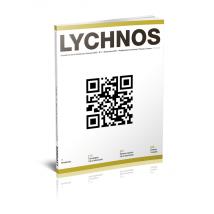Issue 7 of Lychnos, published in December 2011, focuses on information technology. The issue starts with an introduction to the field by Jesús Marco de Lucas, a research professor at the Cantabria Physics Institute.
In the journal’s second section, Vicenç Torra (CSIC) discusses the theory of artificial intelligence and its applications. Next, in her article, Isabel Campos (CSIC) describes how the history of scientific computing infrastructure has always been linked to a symbiosis between science and technology. Marco Shorlemmer (CSIC) introduces the semantic web, and Gonzalo Álvarez, (CSIC) goes on to explain the principles of cryptography.
The following section of this issue of Lychnos comprises three articles describing new information spaces. Agnès Posanti and Isabel Bernal (CSIC) describe the development and impact of permanent, open and free access to scientific research findings. Linguist and publisher, José Antonio Millán, takes us through the history of the modern encyclopaedia, from its origins in the 18th century, down to the emergence of Wikipedia in 2001. And Tomás de Miguel (RedIRIS) explores how the internet of the future opens up huge possibilities for scientific development.
Issue 7 of Lychnos, published in December 2011, focuses on information technology. The issue starts with an introduction to the field by Jesús Marco de Lucas, a research professor at the Cantabria Physics Institute.
In the journal’s second section, Vicenç Torra (CSIC) discusses the theory of artificial intelligence and its applications. Next, in her article, Isabel Campos (CSIC) describes how the history of scientific computing infrastructure has always been linked to a symbiosis between science and technology. Marco Shorlemmer (CSIC) introduces the semantic web, and Gonzalo Álvarez, (CSIC) goes on to explain the principles of cryptography.
The following section of this issue of Lychnos comprises three articles describing new information spaces. Agnès Posanti and Isabel Bernal (CSIC) describe the development and impact of permanent, open and free access to scientific research findings. Linguist and publisher, José Antonio Millán, takes us through the history of the modern encyclopaedia, from its origins in the 18th century, down to the emergence of Wikipedia in 2001. And Tomás de Miguel (RedIRIS) explores how the internet of the future opens up huge possibilities for scientific development.
The fourth section deals with the social impacts of information technology. José Luis Molina (Barcelona Autonomous University) introduces the cultural changes that «social networks» have brought about; Antonio Rodríguez de las Heras (Carlos III University, Madrid) describes how social practices are taking on new forms in the network environment; and finally, Marta Poblet (Barcelona Autonomous University) describes how the Web 2.0 has encouraged citizen participation in the management of crises and emergencies.
Lychnos 7 is rounded off with an article in the forum section by Juan Junquera, Secretary of State for Telecommunications and the Information Society, who discusses the shift «Towards a more technological and innovative society.»





